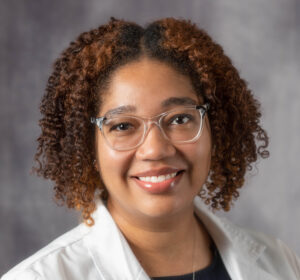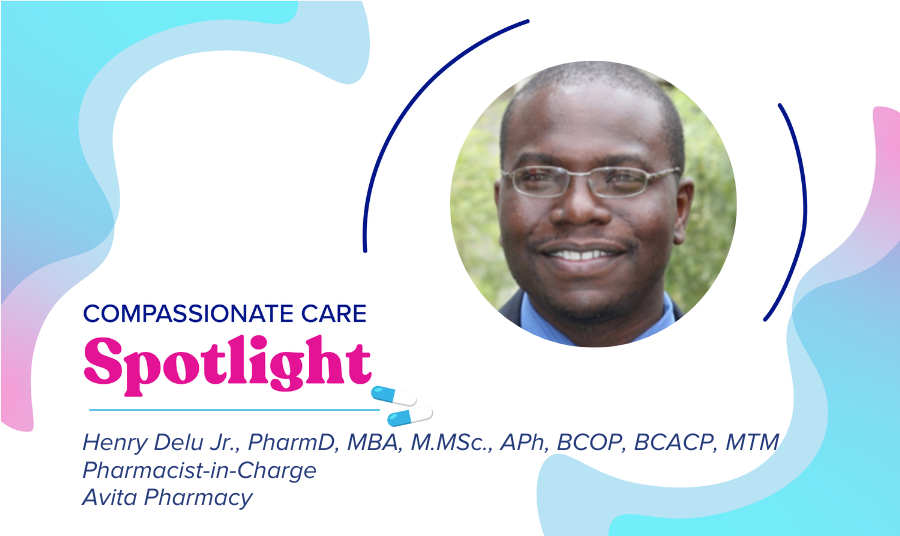Let’s face it: Talking to a healthcare provider about sexual health is probably not going to make it onto most people’s bucket lists. “Speaking to a stranger about sexual health concerns is undoubtedly difficult and downright courageous,” says William Hernandez, a nurse practitioner at community-focused telehealth provider Q Care Plus.
It’s also a lot more important than most people realize. More than 2.4 million Americans were diagnosed with the sexually transmitted infections (STIs) Gonorrhea, Chlamydia, and Syphilis in 2023, according to data from the U.S. Centers for Disease Control and Prevention (CDC). That year’s health surveillance reports also show that 39,000 Americans tested positive for HIV, and more than 120,000 cases of viral hepatitis were reported.
Left undiagnosed or untreated, sexually transmitted diseases can seriously impact patients’ physical wellness, mental health, and social relationships. “The number of times I’ve had partners ask me who gave this infection to whom and when they got it… We can’t test for that, and the mistrust this can cause is damaging to relationships,” says Jennifer Belfry, clinical and Q Care Link program lead and nurse practitioner at Q Care Plus. “Getting tested regularly and detecting infections early is the best way to avoid that awkward conversation with someone you care about.”
To break down many of the misconceptions and stigma surrounding sexual health, we spoke to nurse practitioners from Q Care Plus and the AvitaCare Atlanta medical facility, both Avita Care Solutions companies. Read on to learn the answers to patients’ top sexual health questions and why nurses are uniquely qualified to empower people to optimize their sexual wellness without judgment, fear, or shame.

William Hernandez
MS, APRN, ANP-BC, PMHNP-BC
nurse practitioner
Q Care Plus
Speaking to a stranger about sexual health concerns is undoubtedly difficult and downright courageous.
The top questions patients have (or should have) about sexual health
“One of the top questions patients ask about sexual health is how to lower the risk of sexually transmitted infections (STIs). I take this opportunity to talk about how mitigation strategies for safer sex practices are nuanced and can be customized for different people’s needs. I always mention condoms, but I also acknowledge that some people have a complicated relationship with condoms. This leads to a harm-reduction conversation where we discuss preventative medication management options like HIV pre-exposure prophylaxis (PrEP), HIV post-exposure prophylaxis (PEP), and Doxycycline Post-Exposure Prophylaxis (Doxy-PEP), a treatment that can prevent bacterial STIs after unprotected sex.”
–Michelle Sariev, BSN, MS, NP-C, AAHIVS, nurse practitioner, AvitaCare Atlanta and
Q Care Plus
“A misunderstanding I’ve had to clarify for patients is whether PrEP can give you HIV. The answer is no. HIV PrEP is a medicine that reduces your chance of getting HIV. There are oral options as well as injectable. And yes, PrEP is for anyone, especially individuals who are at high risk for acquiring HIV.”
–Shadiyah Tawwab, CRNP, nurse practitioner, Q Care Plus
“Patients often ask me if oral sex is really a form of sex and if they can get a sexually transmitted infection from engaging in it. My response: The same infections you can contract via the penis, vagina, and anus can be contracted through the mouth. Questions patients are not asking but should be (most of these answers vary depending on the patient’s history) are:
- Am I at risk of contracting HIV?
- Does my STI screening also include an HIV test?
- Can women take the injectable or oral medication for PrEP?
- Can women contract STIs and anal cancer if they are having anal sex?
- Should I get vaccinated against Hepatitis A and B and Human Papillomavirus (HPV)
–Andrea Jefferson-Saboor, MSN, FNP-C, nurse practitioner, AvitaCare Atlanta
“My new patients that come to me from general internal or family medicine are always taken back when we discuss proper STI screening and that a urine sample alone is not a sufficient screening test. They are really boggled to realize that Gonorrhea and Chlamydia screenings must be site-tested aligning with their sexual practices.”
–Keith Hood, MSN, NP-C, AAHIVS, nurse practitioner, AvitaCare Atlanta
“I often hear from patients, ‘I want to be tested for STIs, but I am not worried about HIV.’ I educate my patients about HIV statistics and that if they are concerned about more well-known STIs, this is their opportunity to learn about ALL risks AND how to protect themselves from HIV exposure with PrEP. PrEP is truly one of the few ways patients have control over their risk and exposure to HIV.”
–Serina Madden, DNP, APRN-CNP, AAHIVS, nurse practitioner, Q Care Plus

Michelle Sariev
BSN, MS, NP-C, AAHIVS
nurse practitioner
AvitaCare Atlanta & Q Care Plus
Mitigation strategies for safer sex practices are nuanced and can be customized for different people's needs.
What patients should know about nurse practitioners and sexual healthcare
“Nurse practitioners are a type of advanced practice registered nurse (APRN) with specialized, population-focused training to provide preventative care in addition to diagnosing, treating, and managing acute and chronic illnesses. Many nurse practitioners choose to specialize further beyond their academic training and build expertise in areas like HIV/STI prevention and treatment, epidemiology, and LGBTQ+ health. Partnering with a nurse practitioner for your sexual wellness is an opportunity to be in expert care that revolves around your needs and goals.”
–William Hernandez, MS, APRN, ANP-BC, PMHNP-BC, nurse practitioner,
Q Care Plus
“Nurse practitioners are trained to assess patients and order appropriate screenings and tests. We are trained to safely and effectively prescribe medications including PrEP, PEP, and Doxy-PEP. Our training under the nursing model makes us especially able to compassionately care for folks and address sexual health in a nonjudgemental and nurturing way.”
-Michelle Sariev, BSN, MS, NP-C, AAHIVS, nurse practitioner, AvitaCare Atlanta and
Q Care Plus
“As a nurse practitioner, I understand each patient is different. We can provide individualized, comprehensive, and compassionate care with our diverse nursing experiences and backgrounds.”
-Shadiyah Tawwab, CRNP, nurse practitioner, Q Care Plus

Shadiyah Tawwab, CRNP
nurse practitioner
Q Care Plus
Each patient is different. We can provide individualized, comprehensive, and compassionate care with our diverse nursing experiences and backgrounds.
How Avita’s nurse practitioners provide compassionate sexual healthcare
“I start by introducing myself to patients as a sexual health provider, so let’s talk about sex! I assure them that this is a no-judgment zone and that their privacy is protected. I tell them sex is natural; most people have sex but don’t want to talk about it due to shame and guilt. I like to bring humor into the conversation to ease their anxiety and make them feel comfortable answering the most intimate questions about their sex lives.”
-Andrea Jefferson-Saboor, MSN, FNP-C, nurse practitioner, AvitaCare Atlanta
“I speak to patients in a tone that is welcoming and non-judgmental. Some of the questions we ask during our visits tend to make patients uncomfortable, and they may hesitate to answer or change their body language. I use that time to explain to them that we are here to help and provide care and support. We listen. We do not judge.”
-Shadiyah Tawwab, CRNP, nurse practitioner, Q Care Plus
“My approach is to center the drive toward wellness, that part of us that, despite the difficulty, chooses to participate actively in our health and well-being. Patients feel at ease when they know we are collaborating to support their drive toward wellness and that judgments and stigma have no role to play in that effort.”
-William Hernandez, MS, APRN, ANP-BC, PMHNP-BC, nurse practitioner, Q Care Plus
“I let patients know that I need to take a medical and sexual health history at the beginning of our visit and that all the questions I ask are private and directly correspond to giving them the best medical care possible. This usually puts patients at ease as I educate them about how I plan to use the information to keep them healthy.”
-Serina Madden, DNP, APRN-CNP, AAHIVS, nurse practitioner, Q Care Plus

Andrea Jefferson-Saboor
MSN, FNP-C
nurse practitioner
AvitaCare Atlanta
I assure them that this is a no-judgment zone and that their privacy is protected. I tell them sex is natural; most people have sex but don’t want to talk about it due to shame and guilt.




